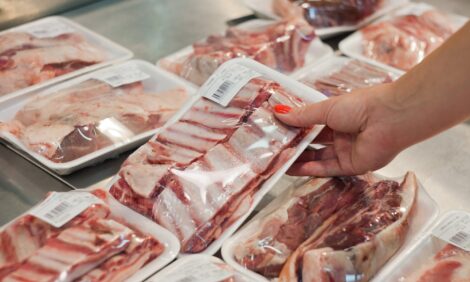



Weekly Overview: Valuable Lessons from PED Outbreaks
GLOBAL - If there is one good thing about the recent outbreaks of the piglet diarrhoea virus in the US, it has highlighted the need for strict and consistent biosecurity measures, according to one of the industry associations there. Also in the pig health headlines in the last week have been African Swine Fever in Russia, flu vaccine development and changing perceptions of porcine circovirus. There are also reports on the growth of the organic food market and China's strategies for feeding its population in the years to come.The US National Pork Board says recent experience with Porcine Epidemic Diarrhoea (PED) has uncovered a range of biosecurity issues that need to be addressed.
The Board's vice president for science and technology, Dr Paul Sundberg, said: "We have discovered that we need to have better protocols for trucking biosecurity and transport, better protocols within packing plants for biosecurity, even down to IT capabilities and laboratory capabilities to report infections."
The total number of swine accessions and diagnostic case submissions testing positive for the PED virus is now 527, according the latest figures from the American Association of Swine Veterinarians (AASV) dated 28 August. The total is up 30 from the previous week. No new states reported a positive result in the last week and so the total affected remains at 17.
A review published recently by the Research Centre for Animal Health (CReSA) in Spain summarises current knowledge on the natural history of infection with porcine circovirus type 2 (PCV2) and related diseases. The report highlights that the perception of the importance of PCV2 has changed dramatically over the last 15 years.
In Russia, African Swine Fever has been found in six wild boars in the region of Vladimir, which lies to the east of Moscow. The animals are thought to have died a month ago.
A vaccine that protects piglets from one common swine influenza virus makes them more vulnerable to a rarer flu strain, suggests research published in 'Science Translational Medicine'.
The journal, 'Nature', says that the finding may give vaccine developers pause for thought. Much of the work to develop a universal flu vaccine has targeted the stems of haemagglutinin proteins because they are relatively consistent across many types of influenza viruses.
The new study suggests that such vaccines could also produce antibodies that enhance the ability of some viruses to infect new hosts.
The manager of the Canadian Swine Health Intelligence Network reports levels of Streptococcus suis (strep suis) infection within the country's pig herds has changed little between the first to the second quarters of 2013.
Continuing research on Salmonella may enable researchers to identify and track strains of antibiotic-resistant bacteria as they evolve and spread, according to a study at Penn State's College of Agricultural Sciences in the US.
Also in the news over the last week, the Soil Association has published its 'Organic Market Report 2013', indicating that worldwide sales of organic food and drink reached US$63 billion – more than €45 billion – by the end of 2011. This represent growth of 25 per cent between the start of the global economic crisis in 2008 and 2011.
At the Farm Progress event in the US, an economist with Rabo AgriFinance explained how China's strategy to feed its growing population includes efforts to produce more pork, corn and rice on their own, a move toward more mechanisation and through global import marketing strategies.






